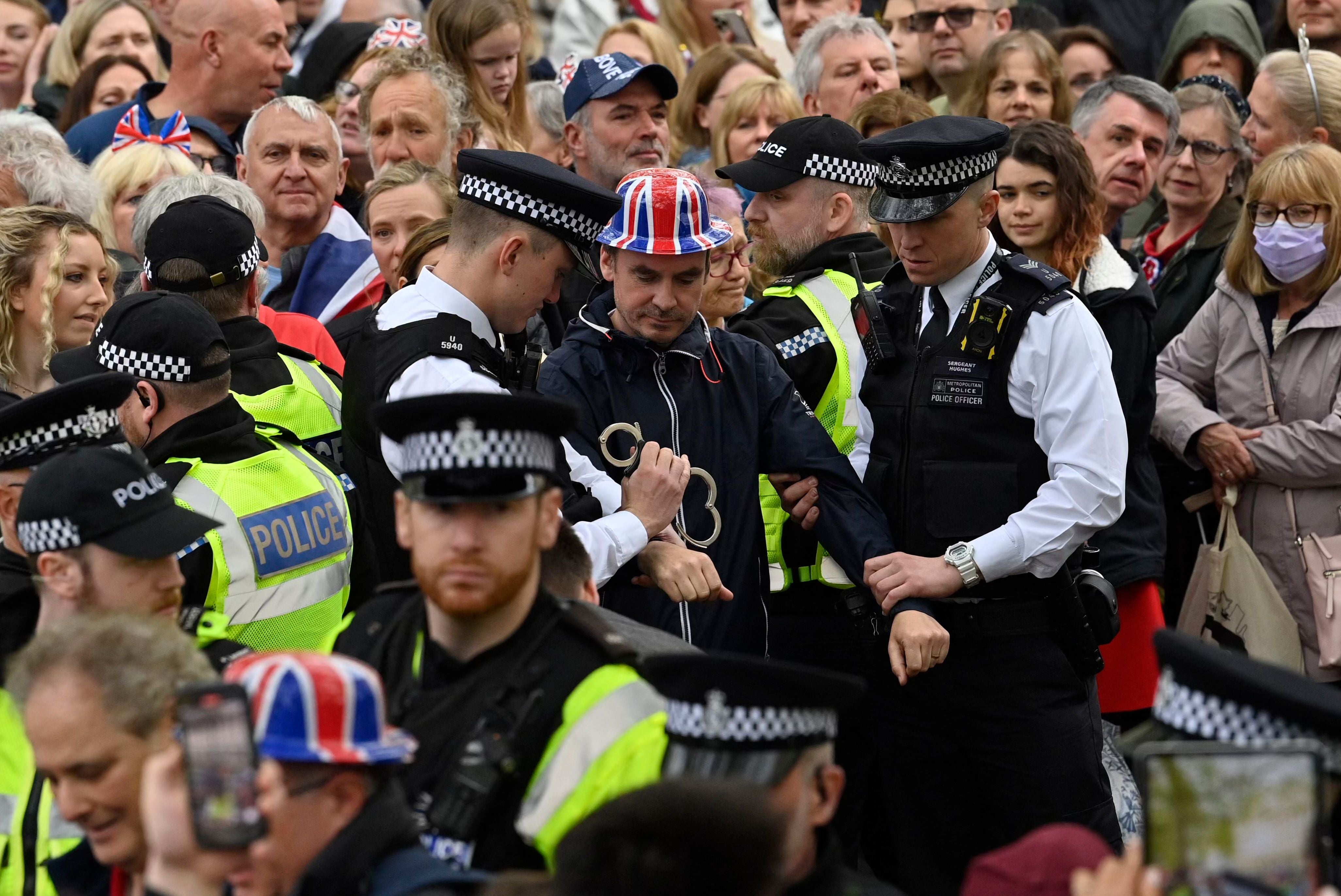Was a new law to blame for the coronation protest arrests?
The Metropolitan Police apologised for arresting anti-monarchical demonstrators, writes John Rentoul


David Davis, the civil libertarian Conservative MP, pointed out in the House of Commons that it was embarrassing for the government that the new Public Order Act should have backfired on its first test. Perhaps the law should be looked at and changed again, he suggested.
It is possible that the new law did play some part in the Metropolitan Police arresting six protesters from the anti-monarchy pressure group Republic, who were then released with an apology.
Some parts of the controversial act came into effect only on 3 May, three days before the coronation. These included provisions setting out the “offence of locking on” and the “offence of being equipped for locking on”, the section on “processions, assemblies and one-person protests” and the section setting out the “meaning of serious disruption”.
So police officers may have been briefed about the new law against “locking on” – that is, protesters attaching themselves to railings and so on – so they may have been sensitised to the idea. Thus they may have been more likely to have assumed that the Republic protesters’ placards were held together with ties that could be used for just such a disruptive protest.
But it seems equally likely that the police were worried about the threat of serious disturbances which could have left them criticised from the opposite direction, for not taking intelligence about attempts to throw paint at horses and the other disruptions that Chris Philp, the policing minister, told the House of Commons about.
Who can say whether, if the new provisions of the act had not just come into force, the police would still have overreacted to the rather small and well-behaved protest by a respectable and principled group? The protesters had even liaised with the police beforehand as they were asked to do.
No doubt opponents of the Public Order Act will use the Met’s embarrassment to campaign for some of the law’s more controversial provisions to be repealed, but others will argue that it is not the offences in the law that need to be looked at, but the way the police enforce them in practice.
This is, after all, the act that was supposed to ban “noisy” demonstrations. But apart from one day when Steve Bray’s music system was confiscated, it has made no difference to how the police treat him. The anti-Brexit protester who plays loud music outside parliament most days is still there, shouting through a megaphone at “Tories” who are “liars, cheats and fraudsters”.
Adam Wagner, the human rights lawyer, makes the point that the police have a responsibility to protect the right to protest, just as they have a responsibility to protect people from excessive disruption by protesters. Yet the right of free expression is so low down the priorities of Conservative politicians and the police that when emergency coronavirus legislation was passed, ministers initially forgot to make an exemption for protests.
It may be that the new Public Order Act is not the problem, but old attitudes among politicians and the police towards fundamental human rights.



Join our commenting forum
Join thought-provoking conversations, follow other Independent readers and see their replies
Comments